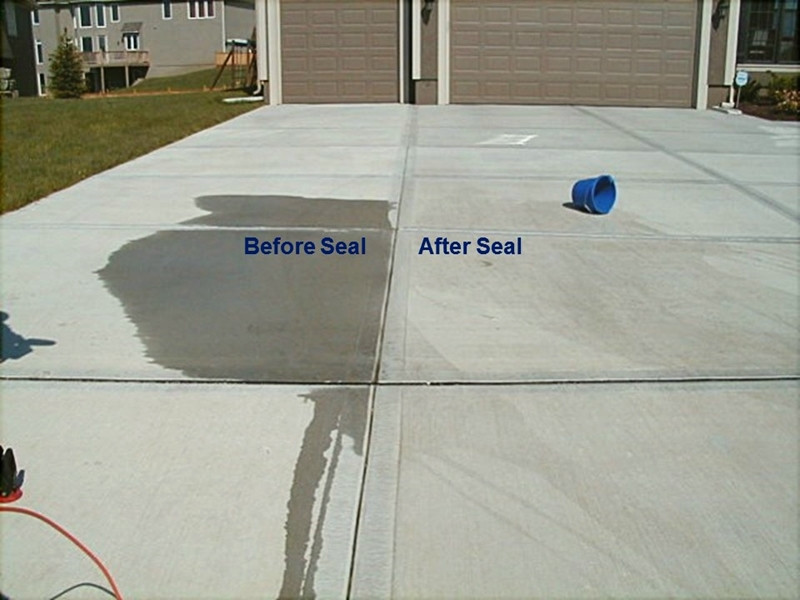Every year thousands of first-time homeowners start the grand adventure – home ownership. Most embark on this journey with little or no education on how to maintain, preserve and protect one of the largest investments they will ever make. And like most homeowners will learn by experience– learning what to do after something breaks and needs repaired. Today we are going to talk about exterior concrete, not to include bricks, stones, stamped or colored concrete or pavers. The points in this paper, while aimed at new homeowners, apply to all homeowners.
The concrete in the front of a home, the driveway, walkways, and front porch, make up a major portion of the front of your home. A poor appearance of these will significantly affect the curb appeal which is extraordinarily important if you decided to sell your home. Dirty, stained, or broken concrete can cause people to not stop to look at your home and can reduce your resale value.
Exterior concrete that is not maintained properly can deteriorate to the point where it needs to be replaced. The exterior concrete driveway, walkway and front porch are included in the purchase price of the home so many people have no idea that to tear out and replace an average driveway in the Midwest will cost between $8,000 and $10,000.
What does a homeowner do to maintain the durability of exterior concrete?
- Keep your concrete as clean as possible. Remove rust stains, oil stains, mold and mildew and just plain dirt as soon as possible, Contaminants in your concrete are not only aesthetically displeasing but will lead to deterioration of the concrete slab.
- Keep lawn fertilizers off your concrete surfaces. Many fertilizers contain iron which can cause rust stains if they get wet. Rust stains can be removed using proper cleaners, however, other fertilizers, especially those used on plants in pots, can cause other discolorations on the concrete that are very difficult if not impossible to remove.
- Run downspouts under your walkway and into the lawn. If you can pre-plan this before construction, it will work best. This results in several benefits to your concrete:
- a) Water can build up in a contained area such as a flowerbed and can cause cracking of walkways due to water pressure. Water will find the easiest path.
- b) Water can build up underneath walkways or driveways and cause the concrete to “rot” from the bottom up. This works its way to the surface of the concrete and shows up as small, spider vein cracks. Once this starts it is impossible to completely stop without tearing out and replacing that section of the concrete. Look up d-cracking for more information.
- c)Water running continually over the concrete can cause discoloration from the various minerals in the water. These stains can prove very difficult to remove.
- Remove snow and ice as soon as possible from your concrete – especially your garage floors.Vehicles build up slush and ice on the undercarriage which contain salt and deicing materials from public roadways. This slush falls on your garage floor, allowing these harsh chemicals to sit on the surface causing all sorts of damage to the concrete.
- Do not allow heavy trucks or vehicles to park on your driveway. Driveways were not designed structurally to carry heavy loads like roofing trailers, trash trucks, moving vans, etc.
- Homeowners should seal exterior concrete slabs as soon as possible but at least before the onset of freezing temperatures. Make sure you select a good, quality concrete sealer and then follow the manufacturers recommendations for resealing the concrete on a regular basis. We recommend a siliconate based sealer such as SealGreen Concrete Sealer Concentrate with Salt-Defense Technology.
- Annual Maintenance of your exterior concrete is extremely important to keep your concrete at its best. Homeowner warranties very rarely cover exterior concrete. Proper care and maintenance are the homeowner's responsibility. Just like your wood deck or siding on your home, concrete must be protected from the environment for them to reach their expected life. Not sealing your exterior concrete can shorten its life expectancy by half.

